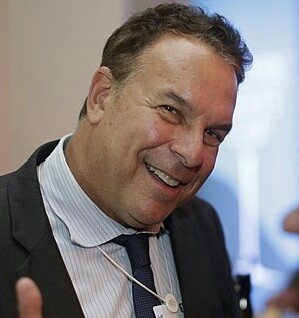A Quote by Blythe Masters
A credit derivative, at its core, is actually a very simple concept... The simplest way to think of a credit derivative is it is analogous to insurance against the risk of a credit default by your counterparty, your business counterpart.
Related Quotes
I think the credit default swaps can take the place of the rating agencies who really have missed the ball in this procedure and are quite conflicted by the way the ratings are paid for. So, I would like to see credit default swaps become an evermore important way of understanding credit risk in the economy.
When it comes to building your business and developing a powerful network, you'll want to develop a reputation as someone who highlights others. Not only does this give credit where credit is due, it also communicates that you're secure with your success and have the ability to promote others in your industry.
Credit card companies are jacking up interest rates, lowering credit limits, and closing accounts - and people who have made timely payments are not exempt. So even if you pay off your balance - and that's tough when interest rates are insanely high - there's a good chance your credit limit will be slashed, and that will hurt your FICO score.
If you have credit card debt and credit card companies continue to close down the cards, what are you going to do? What are you going to do if they raise your interest rates to 32 percent? That's five times higher than what your kid is going to pay in interest on a student loan. Get rid of your credit card debt.





























